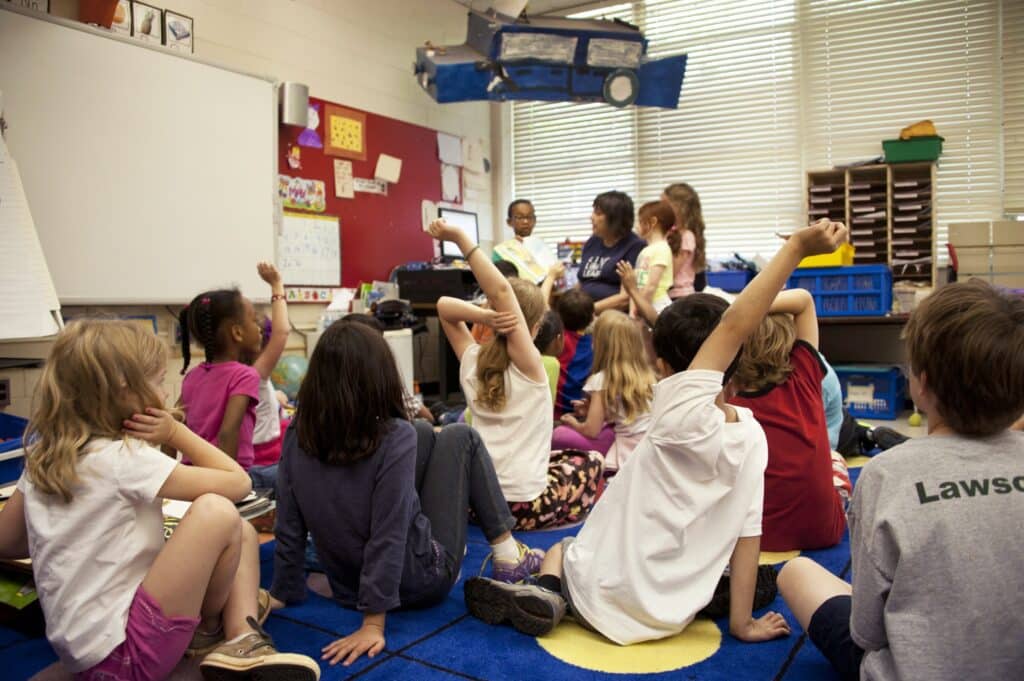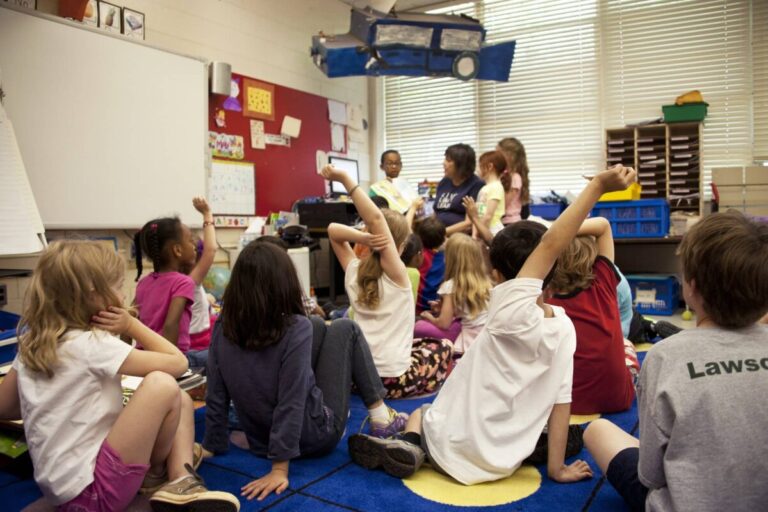There’s plenty to learn about when you’re planning your big move to France, whether that’s how to apply for a visa or the way income tax works in the country. Of course, if you’re taking your children with you, it’ll also be important to have a good working knowledge of the French education system.
The good news is it’s not too complex, with local educational departments taking matters in hand for most families. That said, we know it can be challenging to deal with administrative procedures in unfamiliar surroundings. That’s why we’ve put together this quick guide to schools in France.

Preschool in France
If you’re moving to France with infants in tow, know that France has one of the lowest compulsory starting ages for education in Europe. Children must be enrolled at preschool, or école maternelle, in the year in which they turn three.
The maternelle stage continues until the year they reach six, and the aim is to give kids an early introduction to the school environment and group-based learning and to develop their interest in arts and crafts, physical activities, and basic problem-solving.
A particular benefit for immigrants to France is that it will immerse your children in the French language from a very young age, giving them the opportunity to become every bit as fluent as French-born kids.
Preschool commences in September, with parents and guardians expected to register children by the end of June that same year. Schools are generally designated by proximity to your address, and the enrollment process takes place through your local town hall, known as the Mairie.
If you’d prefer your child to attend a different preschool to the one designated by catchment area, you should speak to Mairie staff about possibly switching to this alternative. There’s no guarantee your request will be granted, however.
Documents required in the French education system
Officials at the Mairie will tell you what documents are required, and these may include:
- Your child’s birth certificate
- Passport and residency documents
- Proof of address, such as recent utility bills
- Official medical records showing your child’s immunization history
Children born before 2018 need to be vaccinated for diphtheria, tetanus and polio, while those born after 2018 must also be vaccinated for whooping coughs, mumps, measles, rubella, influenza, hepatitis B, pneumonia, and meningitis C.
Once this process is completed, you’ll be given a certificate of registration from the Mairie. You should then contact the preschool to submit the certificate and cement your child’s place.
Primary and secondary school stages
The preschool stage leads into the primary school, or école élémentaire, stage. This commences in the year in which your child turns six. If the preschool has a primary school attached, your child will be automatically enrolled. Otherwise, the Mairie will let you know which school has been designated based on where you live.
In their 11th year, your child will move onto a middle school, or collège, in your catchment area.
Again, you are entitled to request an alternative school – for example, if you know that a particular place offers courses that are particularly well suited to your child. The local school inspectorate will decide whether to approve your request.
Registration for middle school typically commences towards the end of the final primary school year, and requires filling in an application form for the assigned school in question (unless the school is attached to the primary school, in which case it’s all done automatically).
From the age of 15, your child can choose to continue their studies at high school, or lycée, level. Courses will be more academic or vocational in nature, depending on what kind of path your child would like to follow. Which lycée is offered will depend on both proximity to your address and which school has the right course for your child.

Entering the school system as a foreign pupil
What if your child is already of middle or high school age when you arrive in France? In this case, you should contact your local school inspectorate or its corresponding CASNAV, which is a specific department dedicated to helping newly arrived children find their place in the school system.
The CASNAV’s experts will assess your child’s educational level and proficiency in French, through interviews and tests. They’ll then help determine which school and year group your child should be assigned to, and whether intensive tuition in French should be provided.
The most recent contacts list for CASNAV offices in France can be found here.
French private schools
Everything we’ve discussed above has been in relation to state, or public, schools, which constitute the vast majority of the French education system and are free to attend.
However, children in France may also be enrolled at private schools, which include many faith-based schools. Some parents prefer private schools, as they can offer smaller class sizes and greater attention to the development of individual students.
What’s more, many private schools in the French education system are considerably more affordable than their equivalents in many other countries.
There are two main categories of private school:
- Sous contrat, meaning they are subsidised by the French government and follow the national curriculum
- Hors contrat, meaning they receive no funding from the government and are free to set their own curriculum
Thanks to government funding, the fees at sous contrat schools are generally far lower than at hors contrat schools, making them a more feasible option for some families.
Procedures and dates will vary between private schools, so you should assess your options and make direct contact with the schools you’re interested in, ideally before arriving in France.
Questions to ask include how large the classes are, what languages are spoken by the students, and what kinds of courses and facilities are on offer. You can search private schools located in the area in France you’re moving to using this directory.
